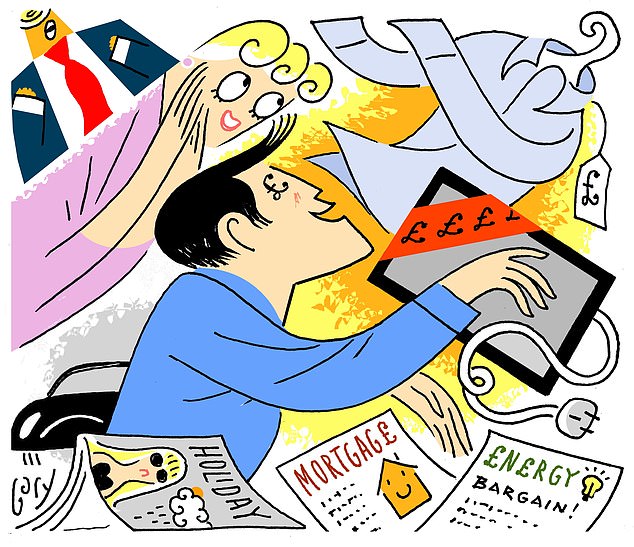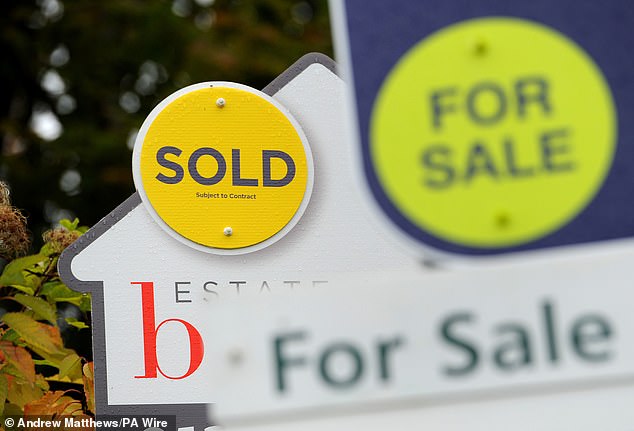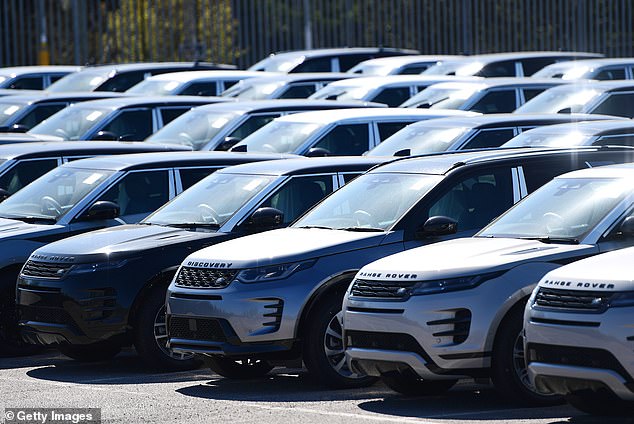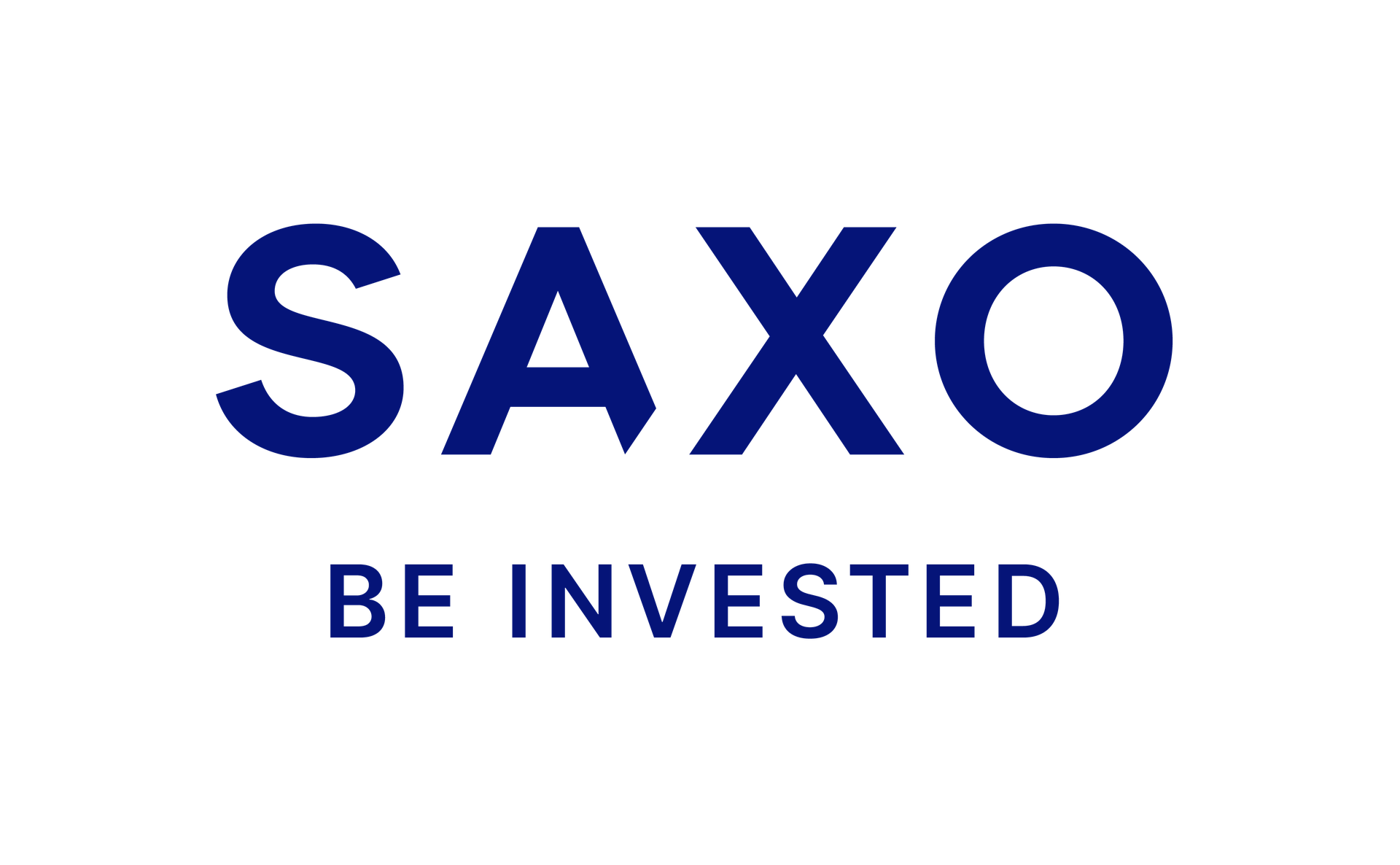Not since the pandemic have our finances faced such a sudden shock.
Global financial markets have plummeted precipitously since President Donald Trump announced tariffs on all goods coming into the US.
The obvious immediate impact has been on pensions and investments – but the trade war has left millions in Britain concerned and confused about the consequences for the economy and the cost of living.
But, while experts fear Trump’s actions could lead to a global recession, the news is not all gloom for UK consumers.
A very brief window to snap up good deals may have opened up – from mortgages and petrol to clothes, electronic goods and cars.
Toby Walne and Lucy Evans explain how the tariffs will affect life this side of the Atlantic…

Dealtime: A very brief window to snap up good deals may have opened up – from mortgages and petrol to clothes, electronic goods and cars
Mortgages
Anyone set to remortgage in the next six months will benefit from a silver lining because of the tariff chaos.
Swathes of larger lenders are set to take an axe to their home loan rates ‘imminently’ according to brokers, who say High Street banks will announce cuts today and tomorrow.
These rate reductions will be welcome news to beleaguered borrowers who have been plagued by high mortgage costs since 2022.
Borrowing costs have soared in the past few years – with two-year deals peaking at 6.86 per cent in July 2023, and five-year fixes reaching 6.51 per cent in October 2022 – which strained household finances. But now homeowners could see their monthly payments fall with new deals.
This year, financial markets are pricing in a further three cuts to the base rate – with one as soon as May, as the Bank of England seeks to limit damage from the tariffs.
Talk of cuts to the base rate is good news for homeowners, as mortgage rates are priced based on the market outlook. Trump has also stated that he would like to see the Federal Reserve cut rates.
Swap rates – which are used by lenders to reduce risk and price mortgage deals – have tumbled since the tariff announcement.
Five-year swap rates fell to 3.63 per cent on Monday – down from 3.97 per cent last Wednesday – while two-year swaps sat at 3.66 per cent on Monday, down from 4.02 per cent. This is a significant drop. It means lenders now have room to cut rates and attract new customers.
On Monday, specialist lender MPowered Mortgages fired the starting gun by slashing rates across its fixed-rate products by as much as 0.21 percentage points, directly claiming President Trump’s Liberation Day as the reason for the cuts.
Chief executive Stuart Cheetham says: ‘We have seen a sharp fall in the swap rates which has enabled us to reduce our fixed-rate mortgage rates.
‘While these tariffs could have a detrimental impact on our economy, with increased prices putting extra strain on UK households, there is a silver lining for mortgage borrowers who will see rates come down.’
A wave of other smaller lenders have followed suit, with TSB, Gen H and Pepper Money yesterday announcing cuts across many of its fixed rates.

Borrowing costs: Swathes of larger lenders are set to take an axe to their home loan rates ‘imminently’, according to brokers
High Street lender Coventry Building Society is also poised to reveal cuts across its fixed-rate range of products today.
Justin Moy of EHF Mortgages says lenders will even offer lucrative sub-4 per cent rates. Fixed rates below 4 per cent disappeared from the market as costs began to spiral in 2022, but they have been returning slowly.
However, borrowers will need to act quickly if they want to snap up one of these improved deals. Mr Moy says: ‘We could see rates drop quickly, but it may only be for a small window of two to three weeks.’
Any cuts to mortgage rates could be reversed if this ‘blows over’ or President Trump decides to reverse the tariffs weeks later. Plus, he says lenders could simply ‘shut up shop’ if they are overwhelmed with demand.
On Tuesday, the average two-year fixed residential deal was 5.32 per cent, while a five-year fix sat at 5.17 per cent, according to rate scrutineer MoneyfactsCompare.
House prices
Falling mortgage rates could result in a lift in house prices, according to brokers. January saw prices soar as buyers rushed to beat the stamp duty deadline on April 1.
But prices fell by 0.5 per cent in March – the second month of decline – to an average of £296,699, as buyers gave up trying to complete in time to avoid the tax hike.
Craig Fish, of Lodestone Mortgages, says: ‘This is clear evidence that the stamp duty rush is over. But with Trumponomics wreaking havoc with financial markets, we could be about to see a vast drop off in mortgage pricing.

Slump: January saw house prices soar as buyers rushed to beat the stamp duty deadline on April 1. But these fell by 0.5% in March – the second month of declining prices
‘This, coupled with increasing wage packets, could see the housing market enter a boom period and the decline in house prices reverse.’
Home movers and first-time buyers rushing to snap up low rates should boost demand for properties.
Riz Malik, financial adviser at R3 Wealth, says: ‘We were all expecting a lull in the market this spring, but if there are cuts in mortgages rates, we could see some people get out there and return to their moving plans.’
Fuel
The price of crude oil has been falling – leading to a drop in the price of fuel at the petrol pumps by up to 6p a litre.
Simon Williams, head of policy at motoring organisation RAC, says: ‘Keep an eye out for falling fuel prices at petrol stations this week – as cheaper costs start to be charged for new stocks of fuel. The price drops should be felt over the next fortnight.’
Petrol and diesel are refined from crude oil – which has seen the price of barrels go from about $75 to $65 since the tariffs were announced.
The price fall is because major producers, including Saudi Arabia, UAE, Oman, Iraq and Russia, say they will pump more oil from May to help lower global prices, which fell by 13 per cent last week.
This is because they fear a downturn in demand if economies contract due to the tariffs, so are hoping to keep demand high by lowering prices.
A 6p fall would see the average price of a litre of petrol fall from 136p to 130p, and diesel from 143p to 137p.
The price of filling up a typical 60-litre fuel tank would fall by £3.60 – with the cost of filling up with petrol falling from £81.60 to £78, and £85.80 to £82.20 for diesel.
However, looking ahead, there are fears that higher costs of running petrol stations – expected following Chancellor Rachel Reeves’s National Insurance contribution and minimum wage rate rises introduced this month – could soon see prices at the pump climb again.
Energy bills
Chris Wheaton, oil analyst at investment bank Stifel, says gas production is also increasing because producers fear a global fall in fuel demand, which is pushing down the price of gas.
He points out there are supply costs, but by the time it gets to our homes it could be 3 per cent cheaper.
He says: ‘The falling price of gas means that the energy cap forced on the industry by the regulator Ofgem is likely to get cut in July.’ It could mean a typical monthly gas bill of £80 would fall to around £77.
Domestic oil which, like car fuel, comes from refined crude oil is also expected to be cut in price in the next couple of weeks, he adds.
Home fuel costing 60p a litre could fall to 54p a litre – with a 1,500-litre tank costing £810 to fill up instead of £900.
Cars
The 25 per cent tariff on cars exported to the US is expected to make both new and second-hand motors more expensive in the UK.
This is because manufacturers such as Jaguar Land Rover are likely to cut production right across the board – pushing up prices not just in the US but globally, too.
This is due to the cost of running a car plant being so high that it might be hard to justify keeping production lines fully open if demand from the US falls. Manufacturers will try to keep profits high by increasing prices.

Rising: Manufacturers such as Jaguar Land Rover are expected to cut production right across the board – pushing up prices not just in America but globally
That’s why experts say now is the best time to buy a car.
Car dealership OurCar says: ‘Fewer new cars rolling off the lines means fewer hitting our showrooms.
With prices creeping up, more motorists will head to the second-hand market. By late spring expect a modest uptick of a few hundred pounds.’
However, OurCar also believes high-end brands such as Rolls-Royce might redirect stock originally intended for the US back to the UK – and this could soften prices at the top end of the car market.
But this could take some months to filter through, with the need for cars to be produced with right-hand drive rather than left hand for the US market.
Shopping
Head to the High Street from Easter onwards and you’ll see bumper spring sales, as everything from clothing to electronics previously destined for the US will now flood the UK.
Sofie Willmott, a director at retail analyst GlobalData, says: ‘We could see surplus stocks in areas such as clothes made in Asia previously earmarked for the US now being sent to Britain because they still need to be sold. Expect to see lots of High Street clothes sales.’
But Ms Willmott warns that high-end American brands such as Nike and Apple, with parts and manufacture that can take place outside the US, are likely to see price hikes, to ensure the financial pain does not fall just on US customers.
Tom Holder, of the British Retail Consortium, believes electronics, such as TVs made in Japan, China or South Korea, could also see their way to the UK rather than the US because of the tariffs – making it a good time to snap up the latest innovations, such as higher-definition screens.
He says: ‘Producers still want to sell their goods, rather than have them collecting dust in warehouses, and electronics are a major part of the export market for countries affected by the tariffs.
While prices may initially drop, there are fears the long-term effects will be damaging and cause inflation and prices to rise later on in the year.’

Deals: Tom Holder, of the British Retail Consortium, believes more electronics, such as TVs made in Japan, China or South Korea, could see their way to the UK rather than the US
Holiday money
Holidaymakers jetting off for Easter may find their spending money a bit stretched because of Liberation Day.
Families travelling to France or Spain this Easter, who have yet to buy their euros, will now get less currency for their money compared to last week.
For example, if you exchanged £500 for euros at the Post Office last Wednesday, you would have received just under 584 euros, as the exchange rate was 1.1672 euros to the pound.
However, the same amount yesterday would get just over 568 euros, with an exchange rate of 1.1361 euros to the pound.
Nicholas Rees, analyst at commercial foreign exchange specialist Monex, says: ‘It’s not good news for British holiday makers’. He says there is a ‘haven bid’ into the euro, which is where money floods into a currency deemed to be safe to hold in an uncertain economic climate.
This has strengthened the euro against the pound, which means British travellers get less currency for their money.
Families heading to the US will also find they will get fewer dollars for their pounds than a week ago.
Yesterday, £500 would get travellers $623.50 at the Post Office, at a rate of 1.247. Last Wednesday, families would have got a slightly higher amount of dollars as the exchange rate was 1.2599. For £500 you would get just under $630.
However, the Post Office says yesterday’s exchange rate is still higher than a year ago when £1 would buy $1.2282. Always compare a money bureau’s online rate with its branch rate as they could differ.
Mr Rees also says the pound to euro rate could rebound. Exchange rates are continually changing amid the tariff chaos, so make sure to check rates before you buy.
Holiday-goers who wish to minimise the risk on buying their currency could use one nifty trick.
Simon Phillips, managing director at travel money specialists No 1 Currency, says: ‘You can get some of your currency now and when it’s nearer the time of your trip you can buy the rest. You won’t get the best rate, but no one knows when that will be. You can de-risk it this way and get a balanced rate.’
DIY INVESTING PLATFORMS

AJ Bell

AJ Bell
Easy investing and ready-made portfolios

Hargreaves Lansdown

Hargreaves Lansdown
Free fund dealing and investment ideas

interactive investor

interactive investor
Flat-fee investing from £4.99 per month

Saxo

Saxo
Get £200 back in trading fees

Trading 212

Trading 212
Free dealing and no account fee
Affiliate links: If you take out a product This is Money may earn a commission. These deals are chosen by our editorial team, as we think they are worth highlighting. This does not affect our editorial independence.
Some links in this article may be affiliate links. If you click on them we may earn a small commission. That helps us fund This Is Money, and keep it free to use. We do not write articles to promote products. We do not allow any commercial relationship to affect our editorial independence.







